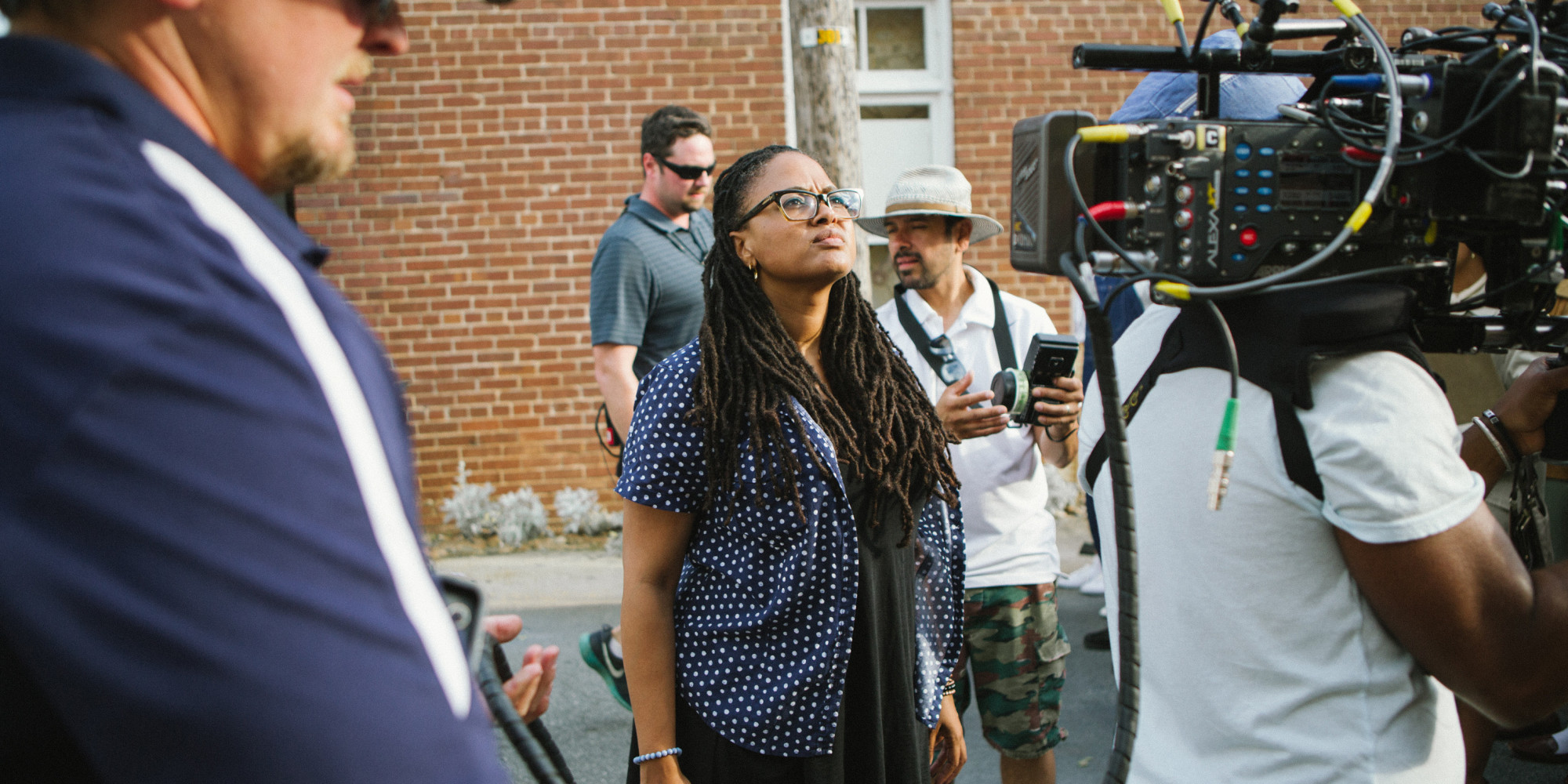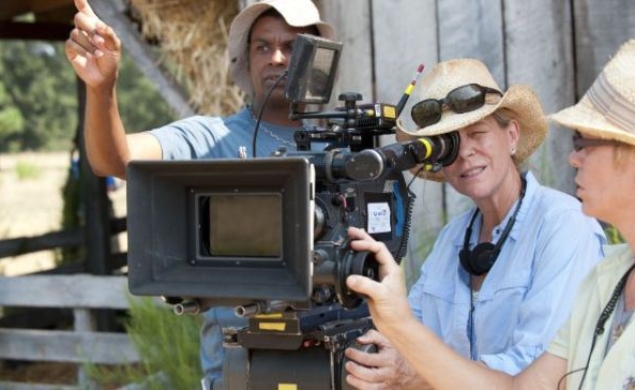Everything that could go wrong on a movie shoot was going
wrong. There were delays, flubbed shots and the mechanical centerpiece of the
film flatly refused to work. Universal Studios no doubt were regretting giving
the adaptation of an expensive bestseller to some kid fresh off episodes of “Columbo”
and “Night Gallery” and a few TV movies. But then “Jaws” opened, made all the
money, and ushered in a cultural watershed of the summer no longer being the
dumping ground but the rich soil in which the studios would spend the next 40
years trying to grow increasingly expensive and unwieldy blockbusters. And they
don’t come more expensive or unwieldy than “Jurassic World,” which opened this
weekend and stomped all comers at the box office. It’s a strangely full circle
moment as “Jurassic World” is the third sequel to “Jaws”’ director Steven
Spielberg’s 1993 dinosaurs run amok “Jurassic Park.” Even “World”’s director
Colin Trevorrow has a similar “called up from the farm leagues” story, having helmed
a modest Sundance hit, “Safety Not Guaranteed,” that brought him the attention
of some of Hollywood’s biggest players. And that’s a story that never, ever
happens to female or minority directors. Ever.
Being a fan of blockbusters and of female directors means not
getting excited at what should be good news like Michelle MacLaren being in
talks to direct a “Star Wars” spin-off. Because you remember how she was also
set to direct “Wonder Woman” and, depending on who’s doing the telling, either
left or was pushed out over “creative differences” with Warner Brothers. Even
her being replaced on “Wonder Woman” with Patty Jenkins isn’t much of a
consolation as it smacks less of wanting the best possible person for the job
than not wanting to catch hell for firing a female director for “Wonder Woman”
and replacing her with a man. And when rumors start that Marvel is considering
Ava DuVernay to direct one of their properties, it means grinding your teeth at the
surprising sudden burst of interest in her “experience” for the job.

Experience is the miserable Catch-22 that’s been slowly
strangling blockbusters with increasingly unfortunate results for the past
twenty some years. It’s what the fear and resentment of women and directors of
color touching beloved toys cloaks itself in so it can’t get called out. Oh no,
the problem isn’t that the director isn’t a white man, not at all, you’re just deeply concerned that they don’t have enough experience for a job. As if
every new job doesn’t begin with a learning curve of some kind. As if some of
their favorite directors didn’t go through baptisms of fire learning the ropes
on their first big break. In a candid interview with The
Verge, Trevorrow frankly admits how much of this was new to him: “I had to be a method director. I had to
almost play the role of myself 20 years from now, with far more experience and
far more knowledge, and I went method the whole damn time.” There is plenty
honorable in the tradition of Fake It Till You Make It, but it’s grown tiresome
in how that window of grace is sealed shut to any person who doesn’t remind a
big name director of a younger, scrappier version of themselves.
Director Lexi Alexander has been giving no quarter in her
fight to open up opportunities for female and minority filmmakers. She’s the
reason for this article, rightly asking that more be written on why exactly we
have no rags to riches template for the trajectory of female and minority
directors’ careers. Why is one indie film deemed a good enough reason to get handed the keys to
a major franchise if you’re a white man, but a CV of several films or several
seasons of some of the most prestige cable TV series leaves you ill-prepared to
handle dinosaurs and superheroes? Going back to MacLaren: she’s only in the
running for the “Star Wars” job after the first director, Josh Trank, got the
boot. Allegedly, Trank was dropped over his “erratic” behavior during filming
of the upcoming “Fantastic Four.” In Alex Pappademas’ enlightening and eyebrow-raising
Grantland
piece about Trank and Trevorrow, he writes how Trank was another quantum
leaper to a blockbuster’s control panel having only helmed another indie, “Chronicle,”
before getting the “Fantastic Four” reboot. Pappademas writes about Hollywood’s
love affair with giving breaks to greenhorn male directors archly: “Sometimes it’s just that easy. You get a
phone call one day, which leads to a meeting with Spielberg, and poof – you’re
a T. Rex wrangler. Directorially speaking, this is Schwab’s Pharmacy stuff.”
Pappademas’ use of the Schwab’s legend feels especially sharp; after all, in
that bit of Tinsel Town lore, it’s a woman who is discovered sipping a drink at
the soda fountain.

As for what can be done to alleviate the situation, people
may balk at the idea of hiring quotas, but it’s time for them. And for the
immediate counter argument of “they only got hired to fill quota,” well maybe
so, but it’s better than the current arrangement of not getting hired at all.
And moreover, it brings with it a genuine trickle down effect. If directors of
big movies go on to hire people who look like them, what does it mean when the
directors look like DuVernay, Alexander, Gina Prince-Bythewood and Justin Lin?
And for the argument that “who cares who’s in the driver’s seat
of the latest brainless popcorn muncher,” consider that “blockbuster” doesn’t
and shouldn’t equal lowered expectations. “Jaws” has aged considerably better
than many films that came out last year. And consider too that more diverse
voices behind the camera also trickles down the stories selected for event
movies. Imagine a beloved film franchise based on Octavia E. Butler’s “Parable
of the Sower” series. Imagine it being the normal state of affairs to read in Variety that studios were in a bidding
war for the rights to “Saga.” Imagine that when Sony wanted to make new
Spider-Man movies to hold on to the rights, they went with the Miles Morales version
of the character. The self-imposed brain drain Hollywood has put on who gets to
direct summer tentpole movies is turning them in ever increasingly pale
imitations of themselves.
There is no better example of that than “Jurassic
World” itself. Like the Indominous Rex that threatens the cast of the fourth
entry, the movie plays like lumpy hybrid of the previous three films. It winces,
embarrassed at the craven pandering to nineties nostalgia, and the frequent
commenting on said craven pandering only underscores how little reason this
movie has to exist when it would have been more cost effective to just
re-re-release the first one. And it’s hard to believe a female director would
let the characterization of Bryce Dallas Howard’s character that four credited
screenwriters coughed up, stand. Poor Howard runs the gamut from “brittle” to
“screaming” and seems mainly to exist so Chris Pratt (drained of every ounce of
charm he showed in “Guardians of the Galaxy”) has someone to constantly be a
horse’s ass to. Sneering at her choice of heels in the lab leaves an
especially bad taste in the mouth. It’s not that a female director wouldn’t put
her in heels, but a female director would know she wears heels because she
likes the extra height; she can look her co-workers in the eye. A female
director would know she wears sneakers on the trek to work and changes into
them there. And a female director would know she keeps the sneakers in her
bottom desk drawer so there’d be something to change into when the fleeing-for-your-life portion of the film starts. And yes, it’s “just” shoes, but it’s more
than that, it’s paying attention to the details, it’s caring enough to see
women as people with worthwhile stories to tell. Because that’s the great irony
of effectively barring women and minorities from directing blockbusters. The
tools may get fancier and more futuristic, but you’re stuck spinning tales that are hopelessly prehistoric.












